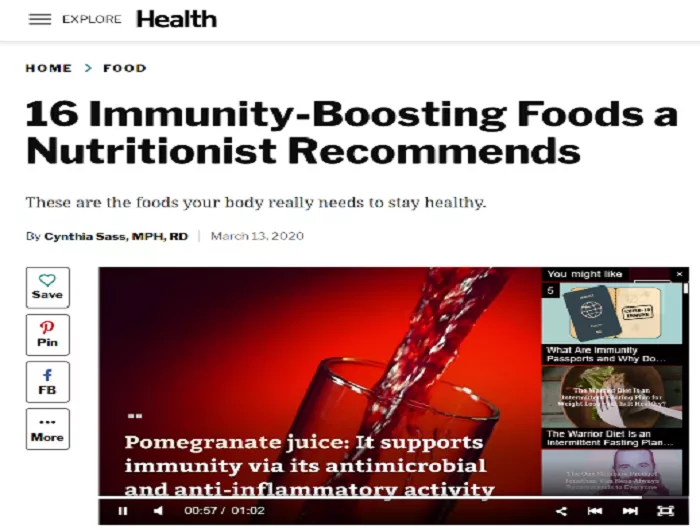Immune boosterism

Beyond the curve: Dr. Peter Lurie's COVID-19 blog
“16 Immunity-Boosting Foods a Nutritionist Recommends,” offered Health.com in March. “20 Vitamins and Supplements To Boost Immune Health for COVID-19,” wrote MedicineNet in April. While experts say “testing, testing, testing,” influencers and supplement manufacturers chime in “immunity, immunity, immunity.” And although we’d all love to believe that a food or a capsule could protect us from the coronavirus, unfortunately, some things are just too good to be true.
The Center for Science in the Public Interest’s Nutrition Action recently interviewed Michael Starnbach, PhD, a professor of microbiology at Harvard Medical School, who explained why the concept of an “immune boost” is flawed: “‘The immune system is a very finely tuned machine where all the parts are working to maintain a defense against foreign invaders, but to not be too reactive. Overreacting would tilt the balance toward causing autoimmune diseases like rheumatoid arthritis or lupus,’ said Starnbach. ‘So the idea that you’re going to globally boost your defense against pathogens doesn’t take into account how the immune system works.’”
The immune system tends to work in specific ways, mounting targeted and coordinated responses to foreign invaders like viruses or bacteria. Even if a food or nutrient has been shown to produce a rise or fall in a particular immune marker or cell, this doesn’t necessarily mean it can help prevent an infection. Or a coronavirus infection.
There is one tried-and-true way to boost your immunity: vaccines. Vaccines deliver small doses of dead or weakened live viruses or bacteria (or only their fragments) to the body. That activates the immune system’s “memory,” allowing it to react quickly and efficiently to future exposures to the same virus or bacterium. Sad to say, there’s no vaccine for the coronavirus around the corner. (We discussed the policy aspects of vaccine development in this earlier blog.)
That said, there’s no harm in stocking up on nutrient-rich foods. Over the long run, a healthy diet—rich in vegetables, fruits, beans, nuts, and whole grains and low in sugars and red meats—can help lower the risk of heart disease, type 2 diabetes, and high blood pressure. And having any of those conditions may increase the risk of more severe illness in people with COVID-19.
So, don’t be fooled by the flashy headlines — no single food or vitamin can fire up your immune system or render you immune to coronavirus infection.
But as for those fruits and vegetables? Keep on eating ’em.
To learn more, check out the full Nutrition Action article, “Foods & immunity: What’s the catch?” and subscribe to Nutrition Action!
Tags
Topics
Contact Info: Contact us at cspinews[at]cspinet.org with questions, ideas, or suggested topics.

